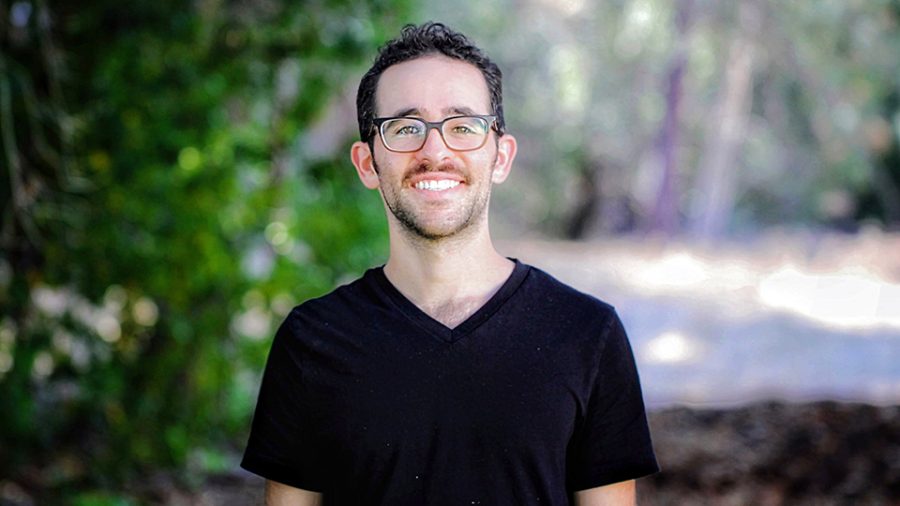Q&A: NU alum Danny Ginzburg discusses plant research, Gates Cambridge Scholarship
Photo courtesy of Northwestern Now
Danny Ginzburg, the recipient of the Gates Cambridge Scholarship. Ginzburg is studying plant circadian biology and plant adaptations in the prestigious PhD program.
November 16, 2022
Danny Ginzburg (Weinberg ‘13) has received the prestigious Gates Cambridge Scholarship for his environmental research.
The scholarship, which has less than a 2% acceptance rate, is a full-cost award to obtain a postgraduate degree in any subject at the University of Cambridge. It is given to those who use their scholarly work to improve people’s lives.
Ginzburg, who has worked in several labs over the years including the Carnegie Institution for Science, is using the scholarship to study plant adaptation and resilience, which he described as an honor.
The Daily spoke with Ginzburg about the scholarship and his scientific research.
This interview has been lightly edited for clarity and brevity.
The Daily: How did you first get into environmental studies?
Ginzburg: (I was) interested in 21st-century energy systems and sustainable urban design. I identified agriculture as being at the center of a lot of sectors of society — an intersection that could have a lot of potential impact on addressing issues related to sustainability, to urban design, to public health. That, combined with my interest in biology and natural sciences, led me down that path.
The Daily: What does it mean to you to receive the Gates Cambridge Scholarship?
Ginzburg: Receiving the scholarship is an incredible privilege. It is literally life-changing in the sense that, without it, I likely would not have come to Cambridge. A lot of responsibility comes from being a Gates scholar, as we are called to always maintain a focus on how our research can improve the lives of others. I feel incredibly fortunate to be among such incredibly accomplished and passionate peers with a huge potential to bring more light into the world.
The Daily: What research are you working on at Cambridge? What are your goals?
Ginzburg: My research as a Ph.D. student is centered around the idea of developing novel agricultural practices explicitly informed by plant circadian biology. Plant circadian rhythms are responsible for much of plant growth and development. They allow plants to adapt to new and often challenging environments. By utilizing modern biological engineering approaches, I will investigate how modifications to the plant circadian clock can improve crop production and agricultural sustainability.
Agriculture needs to continue to improve in terms of yield and resource efficiency to meet the needs of a growing population and a fragile global climate. I can only hope to make a small contribution to this effort.
The Daily: Does climate change factor into your research?
Ginzburg: Not directly. But almost all of my peers would say that the research that we’re doing is imperative. Because of the stresses imposed upon the natural environment and society from climate change, in our own bits of research we tried to come up with bits of information to figure out how to make plants more resilient, how to grow them bigger or better or faster while kind of minimizing (negative effects from climate change).
The Daily: What should the everyday person take away from your work?
Ginzburg: Plants are incredible organisms. They’re rooted in place. And, because of that, they have come up with some really amazing and diverse ways of evolving and adapting to sometimes incredibly harsh climates. They produce chemical compounds to help protect themselves. Many of those compounds have been known for many years but are now being recognized for their medicinal properties in terms of reducing tumors and anti-aging compounds. The natural world is ripe with, essentially, medicine and other ways of protecting itself that we can potentially use and engineer to make ourselves healthier, which I think is pretty incredible.
Email: [email protected]
Twitter: @JackAustinNews
Related Stories:
— Physics and astronomy prof awarded 2023 New Horizons in Physics Prize
— Weinberg senior named 2023 Rhodes Scholar for international service












